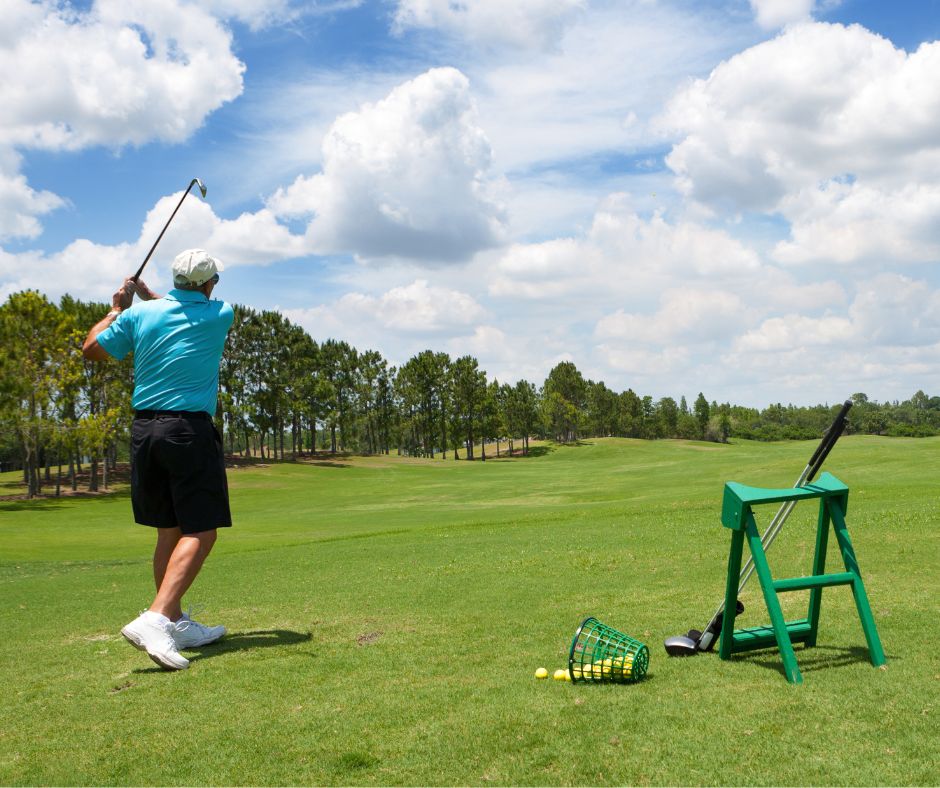Join Our Senior Golfers Newsletter!
Sign up today and receive your free Golf After 60 Bonus Stretch Guide!
Golf is a sport enjoyed by people of all ages, and being an older golfer certainly has its own unique challenges and advantages. As an older golfer, you bring a wealth of experience and wisdom to the game, but may also face certain physical limitations that can impact your performance on the course. Let us explore various aspects of being an older golfer, including the importance of physical fitness, the impact of age-related changes on golfing abilities, strategies for maintaining and improving your game, and the overall benefits of golf for older individuals.

Older Golfers: A Comprehensive Guide
One of the key factors that can greatly influence your success as an older golfer is physical fitness. As we age, our bodies naturally undergo certain changes, such as decreased muscle strength, flexibility, and balance. These changes can have a direct impact on your golf swing and overall performance. It becomes increasingly important, therefore, to engage in regular physical activity and exercises that target the muscles used in golf. Strengthening exercises, such as resistance training and core workouts, can help maintain muscle mass and improve stability. Flexibility exercises, such as stretching and yoga, can enhance your range of motion and prevent injuries.
Additionally, cardiovascular exercises, such as walking, swimming, or cycling, can improve your overall endurance and stamina on the golf course. Engaging in regular physical activity not only enhances your golfing abilities but also contributes to your overall health and well-being. It is important to consult with a healthcare professional or a fitness expert to design a tailored exercise program that meets your specific needs and limitations.
Age-related changes can also affect various aspects of your golf game. For instance, reduced flexibility may lead to a loss of distance in your shots. To compensate for this, you may need to focus on accuracy and course management rather than relying solely on power. It can be beneficial to work with a golf instructor who can help you adapt your swing mechanics to make the best use of your abilities.

Another area of concern for older golfers is joint health. Conditions such as arthritis or previous injuries may limit your mobility and cause discomfort during play. Choosing the right equipment, such as clubs with larger grips or specialized shoes with extra cushioning, can alleviate some of these challenges. Integrating joint-friendly exercises, such as low-impact stretches and warm-up routines, into your pre-game preparation can also help minimize joint discomfort.
In addition to physical considerations, mental aspects play an important role in the game of golf. As an older golfer, you bring a wealth of life experiences and mental resilience to the course. Golf requires focus, concentration, and the ability to manage emotions effectively. Experience can help you develop a calm demeanor and a positive mindset, which are valuable assets on the golf course. Embracing a growth mindset, maintaining realistic expectations, and staying mentally sharp through practice and consistent play are essential for success.
Furthermore, being an older golfer provides an opportunity to connect with a community of like-minded individuals. Golf is a social sport, and many courses offer leagues, tournaments, and events specifically geared towards older players. Engaging with other golfers can foster camaraderie, provide motivation, and enhance the overall enjoyment of the game. These connections can extend beyond the golf course, creating lasting friendships and a support network.

Here are some tips for being an older golfer:
Listen to your body. Don’t try to push yourself too hard. If you’re feeling pain, take a break. And don’t be afraid to modify your swing if needed.
Warm up properly before each round. This will help to prevent injuries.
Stay hydrated. Drink plenty of water before, during, and after your round.
Use the right equipment. Make sure you have clubs that are the right length and flex for your swing.
Find a good instructor. A good instructor can help you to adjust your swing and make sure you’re using the right equipment.
Focus on your short game. As you age, your driving distance may decrease. However, you can still score well by focusing on your short game. Practice your chipping and putting regularly.
Play with friends. Playing golf with friends is a great way to stay active and social.
Have fun! Golf is a game meant to be enjoyed. Don’t get too stressed about your score. Just focus on having a good time.
Here are some additional tips that may be helpful for older golfers:

Here are some specific examples of how to modify your swing as you age:
By taking advantage of these resources, older golfers can stay healthy and competitive on the golf course for many years to come.

In conclusion, being an older golfer comes with its own set of challenges and advantages. By prioritizing physical fitness through tailored exercise programs and adapting your game to accommodate age-related changes, you can continue to enjoy and excel in golf. Mental resilience, experience, and a positive mindset are equally essential. Furthermore, golf offers an opportunity for social interaction and community engagement, fostering a sense of belonging and camaraderie. Regardless of age, golf remains a sport that can be enjoyed and played at any level, providing physical exercise, mental stimulation, and the joy of spending time outdoors.




